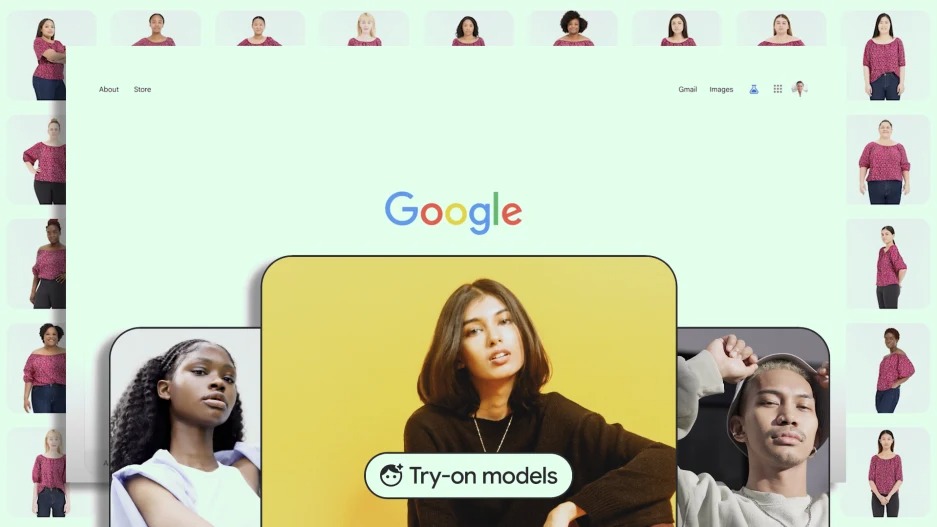- | 8:00 am
From virtual shopping to skin condition scanning: Google unveils new AI-powered features
Google announced on Wednesday a slew of new AI-enhanced features including virtual try-on, and enhanced travel-related search results.

On Wednesday, Google unveiled numerous new features across Google Maps, Search, and Shopping. Several of the newly-released features leverage generative AI.
Many of Google’s products have historically used AI, but advancements in technologies like natural language processing and the rise in popularity of tools like OpenAi’s ChatGPT has brought new attention to the topic. In fact, over the past year, interest in the search term “AI” has increased by 333%.

With today’s announcement, Google eagerly details how the company is already using AI—and demonstrates how the technology will play into future innovations. The new features rolled out by Google today include the following.
VIRTUAL TRY-ON
Google’s virtual try-on (VTO) feature allows shoppers to see how clothing from brands like Anthropologie, Everlane and H&M appears on models of various sizes (XXS to 4XL), skin tones (using the Monk Skin Tone Scale as a reference), and hair types. One Google survey of online apparel shoppers found that 42% don’t feel represented by images of models, 59% have been dissatisfied with clothing they bought online because it looked different on them than expected, and 68% say that it’s difficult to know what a piece of clothing will look like on them before they buy it.
VTO uses a new generative AI model to reflect how a piece of clothing drapes, folds, clings, stretches, and wrinkles. The model takes in images published by retailers as well as images of diverse Google models and harnesses a technique called diffusion to create a new realistic-looking image.
EXPANDED IMMERSIVE VIEW
Earlier this year, Google launched its immersive view feature, which uses AI to fuse together billions of images and create a multidimensional perspective on maps. Currently available in London, Los Angeles, New York, San Francisco, and Tokyo, today Google rolls out Immersive View in four new cities: Amsterdam, Dublin, Florence, and Venice. The feature will be expanded to cover more than 500 landmarks around the world such as the Prague Castle and the Sydney Harbour Bridge.
Immersive View includes a time slider which allows users to see what locations will look like throughout the day, what the weather conditions will be like, and how crowded the location will be. The tool does this using an advanced AI technique developed by Google called neural radiance fields, or NeRF.
LENS FOR SKIN CONDITIONS
Today Google rolled out a new application of its Lens feature which promises to help users identify skin, lip, nail, and hair conditions. While representatives stress that Google is not meant to be used for medical diagnosis, Google currently receives over 10 billion searches for skin conditions each year.
In 2021, Google launched a dermatology app powered by an AI model that successfully passed clinical validation and received clearance from EU regulators. Now, users can use Google Lens to take a photo of their skin condition and receive potential matches.
AI-ENHANCED TRAVEL SEARCH RESULTS
In May, Google opened up access to its new Search Generative Experience (SGE) led by the company’s so-called “Search Labs.” Today, Google rolls out new SGE capabilities for travel-related searches. Now, users can ask more detailed questions about a place or destination and be provided complete chatbot-style answers—as opposed to only links to other sources.
When SGE was previewed last month, many raised concerns that the tool would kill the websites that feed Google’s AI algorithm. Others commended Google for keeping SGE separate from from its traditional search feature.
While many of Wednesday’s newly released features are powered by AI, Google has in fact identified as an “AI-first” company since 2017. “Its AI investments, which date back to the 2000s, may pay off,” writes Fast Company‘s Mark Sullivan, “and could even power the company’s next quarter century of growth.”







































